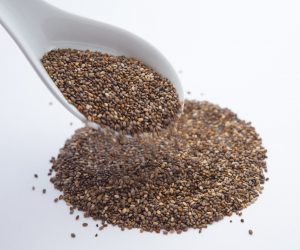
Improve Your Gut Health With These 9 Simple Strategies
Dena Schmidt via NaturalHealth365 – News about the importance of gut health and probiotics linked to overall health has been circulating quite a bit lately. In fact, even conventionally trained doctors are waking up to the importance of maintaining a healthy gut.
Of course, it’s understandable because digestive health is the key to every aspect of our physical, mental, and emotional well-being.
Ultimately, if we ignore our digestion, we’ll eventually pay the unwanted price of poor health.
Thankfully, there are several positive steps we can take to support a healthy gut microbiome.
In doing so, we will absorb nutrients better, help keep the immune system strong, and enjoy a much better mental/emotional outlook on life.
Transform your gut health with 9 essential steps for optimal wellness
1. Digestive enzymes
Digestive enzymes assist in breaking down food, reducing inflammation, and regulating immune responses that could otherwise damage tissues. Taking high-quality enzyme supplements with meals can help to address deficits, support digestive health, and optimize nutrition. If you can’t afford this option, at the very least, everyone would benefit from chewing food more to help with digestion.
If you’re unsure about your supplement options – consult a trusted holistic healthcare provider or health coach with experience in nutritional counseling.
2. Eat more raw fruits and vegetables
Assuming your digestive system can tolerate this, you should be eating more organic fruits and vegetables. By the way, when you these kind of foods (more), you will help to create an ideal balance of digestive enzymes in the gut.
While all fruits and veggies contain enzymes, those with the most beneficial effects include spinach, apples, pineapples, carrots, avocados, grapefruits, and tomatoes. If you’re not used to eating this way – start off with smaller amounts and work your way up in volume.
3. Probiotics for better gut health
Naturally occurring gut bacteria, such as Bifidobacteria and Lactobacillus, play crucial roles in maintaining our health. These beneficial bacteria enhance the functioning of the intestinal barrier, making it more effective at preventing harmful substances from entering the bloodstream. They help suppress a range of pathogens, including viruses, yeasts, and molds, thereby reducing the risk of infections and illnesses.
Friendly gut bacteria also significantly strengthen the immune system. By interacting with the gut-associated lymphoid tissue (GALT), they help modulate immune responses and promote a balanced immune system, which is essential for defending against diseases while preventing excessive inflammatory reactions.
4. Add fiber to your diet – daily
Fiber is essential for healthy digestion and proper intestinal function. In addition to promoting regular bowel movements, fiber supports a healthy gut microbiome and enhances your body’s detoxification pathways.
Including a variety of fiber-rich foods in your daily diet can help maintain digestive health, balance gut bacteria, and assist in the removal of toxins from your body. Aim to incorporate both soluble and insoluble fiber sources, such as organic fruits, vegetables, whole grains, and legumes, to ensure comprehensive support for your digestive system.
5. Get physical – but don’t overdo it
Regular, moderate exercise improves circulation and helps to move toxins out of the body. It also assists with regular bowel movements and oxygenating the blood and cells.
No doubt, walking is the best form of aerobic exercise and offers all the benefits of lower blood pressure, greater heart health, and a wonderful sense of reduced stress in your life – at the end of every walk. (20 – 60 minutes/day is best, and if you’re new to exercise, increase your efforts slowly each week)
6. Drink clean, pure water every day
Drinking plenty of fresh, clean (purified) water throughout the day will keep every cell in your body healthy and strong. Staying well-hydrated helps rid the body of toxins and improves cellular performance.
Note: if you or someone you love is feeling constipated – this is a major health tip: drink more water! Generally speaking, drinking half your body weight in ounces of water is a good place to start. For example, if your body weight is 120 pounds – drink about 60 ounces/day. (At first, this will seem impossible – but, eventually, it’s easy)
7. Eat fermented foods
Fermented foods allow you to naturally incorporate key enzymes and probiotics into your diet. Just a small quantity per day can go a long way toward improving your health.
Some examples of healthy fermented foods include pickled vegetables, raw sauerkraut, miso soup, tempeh, yogurt, kefir, and kombucha.
8. Chew your food 25 times per mouthful or more
This simple step allows you to assist your digestive system in doing its job and improving gut health along the way. The less work your digestive system has to do in terms of breaking food down, the more efficient it can be.
There are also the added mental and emotional benefits of chewing your food. In fact, here’s a challenge for you: If you chew your food 50-100 times (for every mouthful of food), you will notice a greater sense of calm than ever before.
9. Be warned: Antibiotics can destroy your gut health
Antibiotics have been connected with permanent changes in the microflora of people through generations of families, promoting the transmission of deadly organisms and difficulty in recolonization by beneficial bacteria.
Do not overuse antibiotics; if possible, don’t use them at all. Instead, favor natural ways to treat infection and boost the immune system. For instance, garlic, oregano oil, and vitamin C can help neutralize toxins, unfriendly bacteria, and viruses.
Bottom line: Gut health status is strongly linked to immune system strength, the ability to absorb (or not) nutrients from the food we eat, and many other essential bodily functions, such as cellular repair and detoxification.
These nine steps outlined in this special report will give you a great place to start if you’re looking to improve the quality of your life. Enjoy!
Sources for this article include:
NIH.gov
NYTimes.com
LifeExtension.com
ChrisKresser.com
To read the original article click here.






